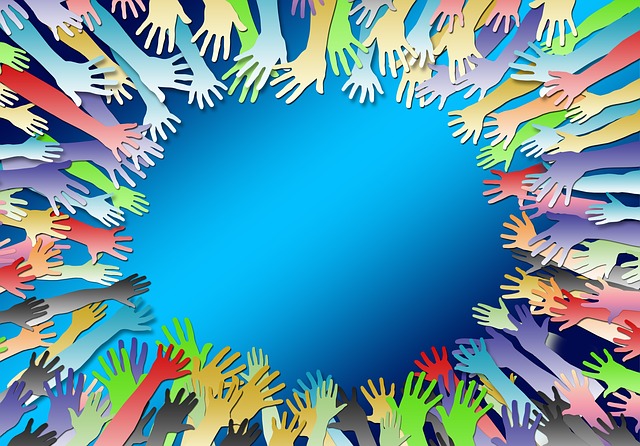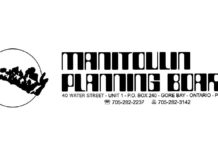EDITOR’S NOTE: The following is a detailed list of commonly asked questions with answers researched and written by Sarah Quackenbush, a member of the Manitoulin Refuge Committee, regarding the soon-to-be-welcomed to Manitoulin Island Eritrean refugee families, the process and how the Island community can help.
What is a refugee?
Refugees are people who have fled their countries because of a well-founded fear of persecution, and who are therefore unable to return home. Many refugees come from war-torn countries and have seen or experienced unthinkable horrors.
A refugee is different from an immigrant, in that an immigrant is a person who chooses to settle permanently in another country. Refugees are forced to flee.
Canada resettles on average 26,000 refugees each year to save lives and to provide stability to those fleeing persecution who have no hope of relief. (http://www.cic.gc.ca)
Why are you doing this?
All of our sponsoring group members believe this is the right thing to do and that compassion and fairness extend far beyond our Island, our country, our continental borders. They have tried to imagine themselves in the same situation that exists in Eritrea—an oppressive government who is murdering citizens, confiscating homes, forcing citizens into indefinite military service, work camps and mines. They cannot imagine the horror of living and fleeing in fear. They cannot imagine making the choice to cross the countries border knowing that their family could be shot. Group members all hope that someone would open their doors and welcome them into safety. They hope that those with the greatest resources would choose not to search for excuses to limit, reject or ignore those who are in the greatest need.
The majority of our community group members are motivated by their Christian faith. Jesus clearly taught that we should love our neighbours (Luke 10:25-37). When he was speaking of our neighbour in the story of the Good Samaritan he was speaking not of those next door to us, but deliberately teaching that our neighbour includes people of different ethnicities and religions as well.
Where are the refugee families from?
All refugee families that will be coming to Manitoulin are from Eritrea. Eritrea is a small coastal country in Eastern Africa. Currently all families are living in United Nations refugee camps in Ethiopia. Some of these families have been living in these refugee camps for over five years.
Why were Eritrean families chosen?
Early in September the picture of the young Syrian boy washed up on the beach impacted many of us on the Island deeply. Conversations were started in our homes, churches and places of work and many were asking how they could help. Mindemoya Missionary Church started looking into how they could respond to the refugee crisis and they contacted Mennonite Central Committee (MCC) to partner with them. Shortly after, other community members were organizing themselves to take action and decided to partner with the efforts that were already underway.
MCC sent Mindemoya Missionary Church a large document with many refugee families and individuals from all over the world who were approved by the UN to be on the Blended Visa Office-Referred (BVOR) List. At the time there were no Syrian refugees on the BVOR list since the UN hadn’t had time to process and approve those from Syria. The first pages of the document were refugees from Eritrea. There were more refugee families from Eritrea on that list than from any other country.
It was helpful that Manitoulin already had two Eritrean families on the Island, including a high school student who speaks fluent Tigrinya. These two Island families supported this decision, and were eager to make themselves available for translation, cultural integration and in other ways. After some research into the current state of Eritrea and why there were so many refugees from the country the need to help these people was quickly realized.
Even though these refugees are not from Syria, all community groups believe that these people are in desperate need of refuge and by welcoming these five Eritrean families to Manitoulin they are able to make a difference in this global refugee crisis.
What is happening in Eritrea to make these families flee?
The UN commission of inquiry on human rights in Eritrea published their report back in June 2015 that the Eritrea government is carrying out extrajudicial killings, torture, rape, indefinite national service and forced labour “on a scope and scale seldom witnessed anywhere.” Eritreans who attempt to leave the country are seen as traitors. The report also states that “For a considerable period of time, the government has implemented a shoot-to-kill policy in border areas to prevent people from fleeing.” Next to Syria, this east African nation of 6 million was one of the largest sources of migrants into Europe. Those that escape take the perilous journey into Sudan and then across Libya before finally setting out to sea towards Europe’s shores (Guardian, June 2015).
What is the Blended Visa Office-Referred Program?
Launched in 2013, the Blended Visa Office-Referred (BVOR) Program matches refugees identified for resettlement by the United Nations High Commission on Refugees (UNHCR) with private sponsors in Canada.
The goal is to engage in a three-way partnership among the Government of Canada, the UNHCR, and private sponsors.
The UNHCR will identify the refugees, the Government of Canada will provide up to six months of income support through the Resettlement Assistance Program (RAP), while private sponsors will provide another six months of financial support and up to a year of social and emotional support. (http://www.cic.gc.ca)
Why five families?
The amazing response and desire to help from all over the Island meant that plans to support one refugee family quickly turned into five families. To sponsor a family for a year, on top of the financial commitment of approximately $15,000 per family and provision of accommodations, there needed to be a group of people dedicated to offering daily, ongoing support to the family for a whole year. Five groups quickly formed in the town of Gore Bay, Little Current (2), Manitowaning and Mindemoya.
All five families selected were from Eritrea because of the translation resources available and so that they would have a cultural community here on the Island. The community groups look forward to hosting events for all the families to come together with hopes that they will not feel isolated in their new home and country.
When will the families arrive?
Many of the refugees sponsored under the BVOR program will be travel-ready, meaning that they have gone through the extensive security and medical screening necessary already, and will arrive in Canada quickly, normally within 1-4 months. The first family is expected to be arriving in late December/ early January.
Who is going to be supporting them?
There is a core group of 6-8 people, committed to supporting the family, in each of the communities where the new families will be settled. The core group has found housing and is furnishing the new families home. The core group in each community has assigned people in their group to teach English As a Second Language (ESL) to the adults and children, teach cooking and Canadian life skills, teach banking and budgeting, assist in filling out government forms, help the students into the school system, offer social opportunities and emotional support, etc.
Are these refugees a threat?
If you are concerned about threats of terrorism, it might be helpful to reflect on the fact that refugee resettlement is the least likely route for potential terrorists. For the past 10 years, Canada has resettled on average 26,000 refugees a year. There have been no cases of terrorism among those 260,000 individuals. The case is the same in the United States. Of the 745,000 refugees resettled in the USA since September 11, 2001, there were only two individuals charged with aiding terrorists outside of the USA.
The United Nations and the Government of Canada have partnered together to provide strict security and medical checks before these families were even considered to be put on to the BVOR list. The families are rechecked again before they are able to come to Canada. Once in Canada there are more screening processes they have to go through before they will be allowed to leave the airport.
Where are these new families going to find work?
For the first year of sponsorship, the individuals are not encouraged to work. Instead, because of the financial support of people on the Island, these individuals will be able to focus on learning English and growing accustomed to living in Canada. The core groups will be working with the individuals to teach them skills that will lead to eventual employment such as housekeeper, farm workers, labourers, and entrepreneurs. Some of the young people might want to continue their education off Island at colleges and trade schools. The community groups are confident that these new families will quickly be making valuable contributions to our Island economy.
What can I do to help?
Because of the overwhelming support and generosity of the Island, enough furniture to complete these fives homes and more, has been received. Over 100 bags of clothing has been donated including kid’s toys and kid’s books. Plenty of offers of dishes and housewares also have been made.
If you would still like to donate, the community groups are now looking for the donation of consumable products like shampoo, hand soap, laundry detergent, toilet paper, etc. If you or a group from your church, workplace or club would like to help by donating these types of items, a list of needed items can be provided. Please contact ManitoulinRefuge@gmail.com
Financial support is also needed. The cost to support these five families is estimated at $75,000 for the year. All donations will receive a tax receipt. Donations can be made out to Mindemoya Missionary Church with Manitoulin Refuge indicated on them. All money donated to the Manitoulin Refuge Fund will go directly to the new families. All financial deposits are recorded by two tellers, confirmed by the treasurer, and audited independently.
For more information, please email ManitoulinRefuge@gmail.com, visit the Facebook page Manitoulin Refuge or call Ben or Sarah Quackenbush at 705-368-3642.






